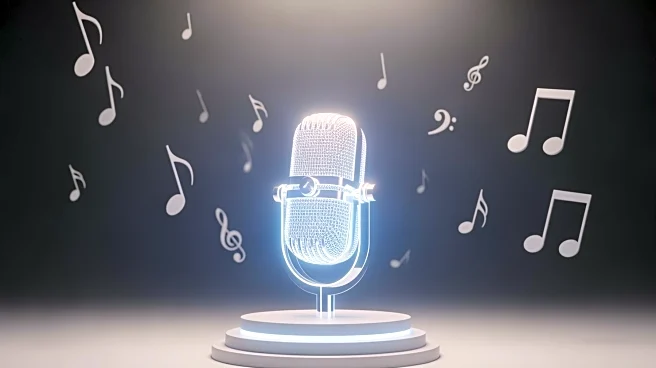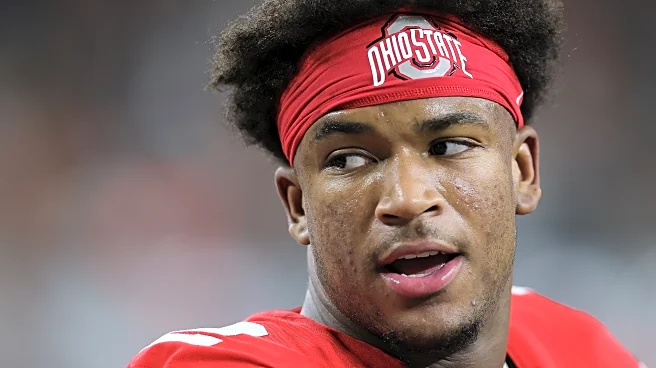What's Happening?
An AI-generated country song titled 'Walk My Walk' by the fictional group Breaking Rust has topped Billboard's 'Country Digital Song Sales' chart in the United States. The song, which tells a generic story
of perseverance, has gained significant traction on Spotify, accumulating over two million monthly listeners. Despite its uninspired nature, Breaking Rust is listed as a 'verified artist' on Spotify, with several songs played over a million times. The composer and lyricist behind the group, Aubierre Rivaldo Taylor, has also been producing raunchy AI music under the pseudonym 'Defbeatsai.' This development follows Billboard's announcement that AI or AI-assisted artists have been charting consistently over the past four weeks, indicating a growing trend in algorithmically generated music.
Why It's Important?
The rise of AI-generated music poses significant challenges for human artists trying to break into the industry. As AI bands gain popularity, it becomes increasingly difficult for real musicians to establish a following, particularly on streaming platforms like Spotify and Apple Music. The music industry is embracing AI, with major labels like Universal Music Group signing multi-million-dollar deals with AI artists. This trend raises concerns about the future of music creation and the potential marginalization of human creativity. Indiana University assistant professor of music technology Jason Palamara highlights the difficulty human artists face in competing with AI-generated content, which could reshape the landscape of the music industry.
What's Next?
Spotify has announced new policies to protect artists from 'spam, impersonation, and deception,' but has not banned AI music outright. As AI-generated music continues to gain traction, industry stakeholders may need to address ethical and legal implications, including copyright infringement and the authenticity of music creation. The ongoing development of AI music platforms, such as Udio's upcoming creation platform, suggests that AI's role in music production will expand. Artists, labels, and streaming services may need to adapt to this evolving landscape, balancing innovation with the preservation of human artistry.
Beyond the Headlines
The increasing prevalence of AI-generated music raises ethical questions about the nature of creativity and the value of human expression. As AI technology advances, the distinction between human and machine-generated art becomes blurred, challenging traditional notions of authorship and originality. This shift could lead to long-term changes in how music is produced, consumed, and valued, potentially altering cultural perceptions of art and creativity.









